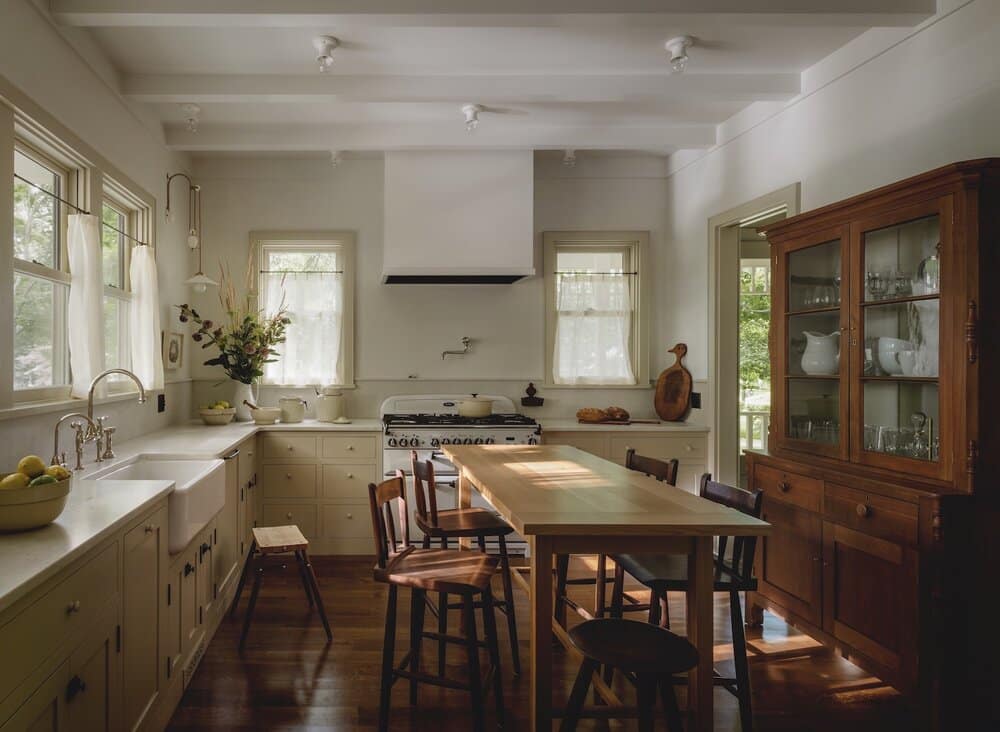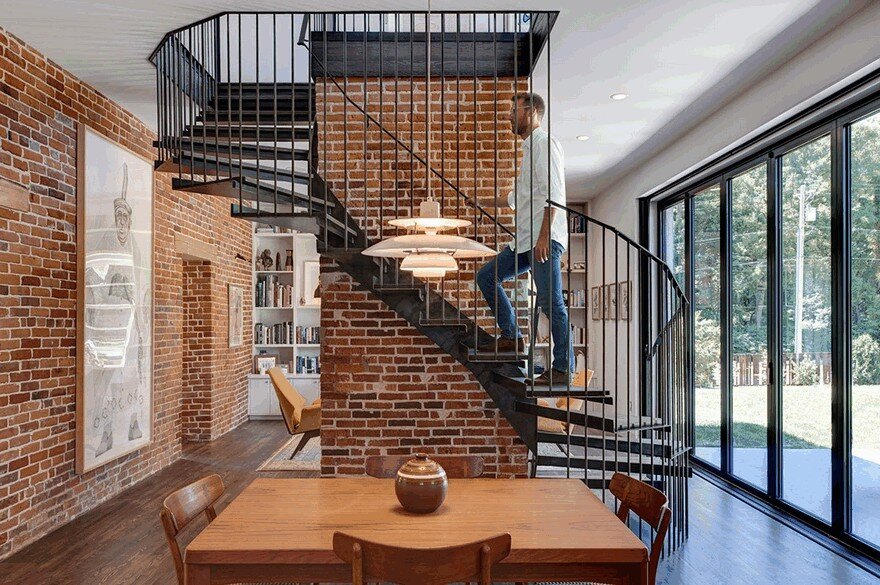If you’re a homeowner in Iowa City, Iowa, and looking to give your home a fresh look, then look no further than Home Renovation Iowa City Iowa. With their expertise and attention to detail, they can transform any space into a beautiful and functional area that suits your style and needs. Whether it’s a simple bathroom remodel or a complete overhaul of your living space, their friendly team will guide you through the process and ensure your vision becomes a reality. Trust Home Renovation Iowa City Iowa to bring new life to your home.

Benefits of Home Renovation
When it comes to home renovation, there are numerous benefits that can greatly enhance your living experience. One of the primary advantages is enhanced comfort. Through the renovation process, you can update and upgrade various aspects of your home to create a more comfortable and inviting living environment.
Improved functionality is another major benefit of home renovation. Whether it’s reconfiguring your kitchen layout for better flow or adding a bathroom to accommodate a growing family, renovations can greatly improve the functionality of your home to better meet your specific needs.
Furthermore, home renovations can significantly increase the value of your property. By updating outdated features, modernizing your home’s design, or adding new amenities, you can attract potential buyers and potentially increase the asking price if you ever decide to sell.
Another advantage of home renovation is the potential to reduce maintenance costs. By addressing any current issues or fixing structural problems during the renovation process, you can avoid future repairs and associated expenses. Additionally, by upgrading to more energy-efficient systems and appliances, you can reduce utility costs in the long run.
Choosing the Right Contractor
When embarking on a home renovation project, choosing the right contractor is vital to ensure a smooth and successful process. Start by researching local contractors in your area. Look for professionals who have experience and a proven track record in the type of renovation you are planning.
Reading reviews and testimonials from previous clients can provide valuable insight into a contractor’s reliability, craftsmanship, and customer service. Pay attention to both positive and negative reviews to get a well-rounded understanding of their work.
Requesting multiple quotes from different contractors will allow you to compare prices and services. Be sure to provide each contractor with the same information and specific renovation plans to receive accurate and comparable quotes.
Verifying licenses and insurance is crucial to protect yourself and your property. Check if the contractor holds the necessary licenses and permits required by your local authorities. Additionally, ensure that they have adequate insurance coverage to protect against any potential accidents or damages that may occur during the renovation process.
Checking previous work is an excellent way to evaluate a contractor’s capabilities and style. Ask for a portfolio or references of their past projects to see the quality of their craftsmanship and get inspiration for your own renovation.

Planning and Design
Proper planning and design are essential for a successful home renovation. Start by identifying your renovation goals. Consider what aspects of your home you want to improve, whether it’s specific rooms, functionality, or aesthetics. This will help guide the rest of your planning process.
Next, set a realistic budget for your renovation. Consider the costs of materials, labor, permits, and any additional expenses that may arise. It’s important to be financially prepared and avoid any surprises during the renovation.
Determine whether your renovation requires any permits or permissions from your local authorities. Certain renovations, such as additions or structural changes, may require specific approvals. Ensure you understand the necessary regulations and obtain the proper permits before starting the renovation.
Working with an architect or designer can be highly beneficial, especially for larger or more complex renovations. These professionals can provide expert advice, help refine your ideas, and create detailed floor plans that will guide the construction process. Their expertise can contribute to maximizing functionality and aesthetics while staying within your budget.
Creating detailed floor plans is crucial for a well-executed renovation. These plans will serve as a blueprint for the construction team and ensure that everyone is on the same page. Include accurate measurements, placement of fixtures, and specific design details to avoid any confusion or mistakes during the renovation.
Renovation Financing Options
If you’re considering a home renovation but are concerned about the financial aspect, there are several financing options available to help bring your vision to life.
Personal savings are often the most straightforward and cost-effective way to finance a renovation. By saving up for your project in advance, you can avoid interest charges and potential debt. However, this may not be a feasible option for everyone.
Home equity loans or lines of credit allow you to borrow against the equity you have built up in your home. This can provide a substantial amount of funding for your renovation project. These loans typically offer lower interest rates compared to other types of loans.
Construction loans are specifically designed for home renovations and new construction projects. These loans provide funds in stages as the construction progresses. They may require higher interest payments during the construction phase but can be converted into a mortgage once the renovation is complete.
Refinancing your current mortgage is an option worth exploring. By refinancing at a lower interest rate or extending the loan term, you can free up additional funds to invest in your renovation. This option may require careful consideration and consultation with a financial advisor.
Government grants and programs can provide financial assistance for specific types of renovations. Research whether there are any grants or programs available in your area that align with your renovation goals. These can provide significant financial relief and make your renovation more affordable.

Popular Home Renovation Ideas
When it comes to home renovations, there are countless possibilities to consider. Here are some popular ideas to inspire your project:
-
Kitchen remodeling: Updating your kitchen can drastically improve both functionality and aesthetics. Consider upgrading appliances, installing new cabinets, or adding a kitchen island for additional workspace.
-
Bathroom upgrades: Renovating your bathroom can create a spa-like retreat. Replace outdated fixtures, update the plumbing, or install a luxurious bathtub or shower.
-
Basement renovation: Transform your basement into a functional living space. Consider adding an extra bedroom, a home office, or a playroom for the kids.
-
Adding an outdoor deck or patio: Enhance your outdoor living experience by adding a deck or patio. It provides a versatile space for entertaining, relaxing, and enjoying nature.
-
Landscaping: Improve your home’s curb appeal by investing in landscaping. Planting trees, creating flower beds, and adding outdoor lighting can greatly enhance your home’s exterior.
Finding Inspiration
If you’re struggling to come up with renovation ideas, don’t worry! There are plenty of resources available to help you find inspiration and spark your creativity.
Browsing home renovation magazines can provide a wealth of ideas and showcase the latest trends in home design. Flip through the pages and bookmark any designs or features that catch your eye.
Exploring online photo galleries is another excellent way to find inspiration. Websites like Pinterest and Houzz offer a vast array of images of renovated homes, organized by room, style, and theme. Create boards and save images that resonate with your vision.
Visiting home improvement shows can give you a firsthand look at various renovation projects. These shows often feature demo houses and booths where you can interact with experts and gather ideas. Take notes and ask questions to make the most of your visit.
Seeking recommendations from friends and family who have recently undertaken renovations can be highly valuable. They can share their experiences, offer advice, and even provide you with contacts for trusted contractors they’ve worked with.

Preparing for Renovation
Before the renovation begins, it’s essential to adequately prepare your home to minimize disruptions and ensure a smooth construction process.
Clearing and organizing the space is the first step. Remove furniture, decorations, and other belongings from the area that will be renovated. This will make it easier for the construction team to work and prevent any damage or accidental loss of your possessions.
Protecting furniture and belongings that remain in the home is crucial. Cover them with appropriate materials like plastic sheets or blankets to shield them from dust, debris, and potential damage from construction activities.
Arranging temporary living arrangements may be necessary if the renovation significantly affects essential areas of your home. Consider staying with family or friends, booking a short-term rental, or setting up a temporary living space within your own home if feasible.
Creating a renovation timeline is essential for staying organized and managing expectations. Collaborate with your contractor to establish a realistic schedule for each phase of the renovation. A timeline will help you anticipate potential disruptions and ensure that the project stays on track.
Securing necessary permits is a critical step to avoid any legal issues during the renovation process. Research the specific permits required for your renovation project and submit the necessary applications well in advance.
Renovation Process
Once the planning and preparation stages are complete, it’s time to begin the renovation. The process typically follows these general steps:
-
Demolition and removal: This involves removing any existing structures or fixtures that need to be replaced or modified.
-
Structural changes and repairs: If your renovation includes any structural modifications, such as removing walls or adding support beams, this is the stage where those changes occur.
-
Electrical and plumbing work: Rewiring, installing new outlets, and updating plumbing fixtures are crucial steps in many renovations. Professionals will ensure that electrical and plumbing systems are up to code and properly integrated into the renovation.
-
Insulation and drywall installation: To enhance energy efficiency and create a smooth finish, insulation is installed and followed by drywall or other wall materials.
-
Flooring, painting, and finishing: This stage involves installing new flooring materials, applying paint or wallpaper, and completing any finishing touches like molding, trim, and fixtures.

Managing Renovation Challenges
During a home renovation, it’s common to encounter unexpected challenges or setbacks. Here are some tips for effectively managing these situations:
-
Dealing with unexpected issues: Be prepared for surprises that may arise during the renovation process, such as hidden structural damage or unexpected code requirements. Stay flexible and work closely with your contractor to find viable solutions.
-
Adhering to the renovation timeline: Sticking to the established timeline is crucial for the success of your renovation project. Regularly communicate with your contractor to ensure that deadlines are met and any delays are addressed promptly.
-
Handling changes and adjustments: Sometimes, plans may need to be adjusted as the renovation progresses. It’s important to maintain open communication with your contractor and be proactive in discussing any necessary changes. This will help avoid misunderstandings and ensure that the end result aligns with your vision.
-
Maintaining communication with the contractor: Effective communication is key to a successful renovation. Keep the lines of communication open with your contractor, regularly discussing progress, concerns, and any necessary adjustments. This will help keep everyone on the same page and minimize any potential misunderstandings.
-
Minimizing disruptions to daily routine: Renovations can temporarily disrupt your daily routine, so it’s important to anticipate and plan for these disruptions. Establish temporary workarounds, such as setting up a temporary kitchen or bathroom, to help make the process more manageable.
Completing the Renovation
As your renovation nears completion, there are several final steps to take to ensure everything is in order before enjoying your new space:
-
Final inspection and approval: Your local building authority may require a final inspection to ensure that the renovation meets all building codes and regulations. Schedule an inspection and address any issues that arise.
-
Testing and ensuring proper functionality: Before moving back in, test all systems and components to ensure they are functioning as intended. This includes checking electrical outlets, plumbing fixtures, heating and cooling systems, and any other features that were part of the renovation.
-
Cleaning and organizing the space: After the renovation is complete, thoroughly clean and organize the renovated area. Remove any construction debris, dust, or dirt to create a fresh and welcoming space.
-
Moving back in and enjoying the new space: Once everything is in order, it’s time to move back into your renovated space. Take the time to properly arrange furniture and decorations to maximize comfort and functionality.
-
Addressing any remaining touch-ups: After living in the renovated space for a short period, you may notice minor touch-ups that need to be addressed. Communicate these concerns to your contractor, who will rectify any outstanding issues to ensure your complete satisfaction.
In conclusion, home renovation offers numerous benefits, including enhanced comfort, improved functionality, increased property value, and reduced maintenance costs. By choosing the right contractor, planning and designing carefully, exploring financing options, and finding inspiration, you can embark on a successful renovation journey. Prepare for the renovation, manage challenges effectively, and complete the process with final inspections and adjustments. In the end, you’ll be able to enjoy and appreciate your newly renovated space.
